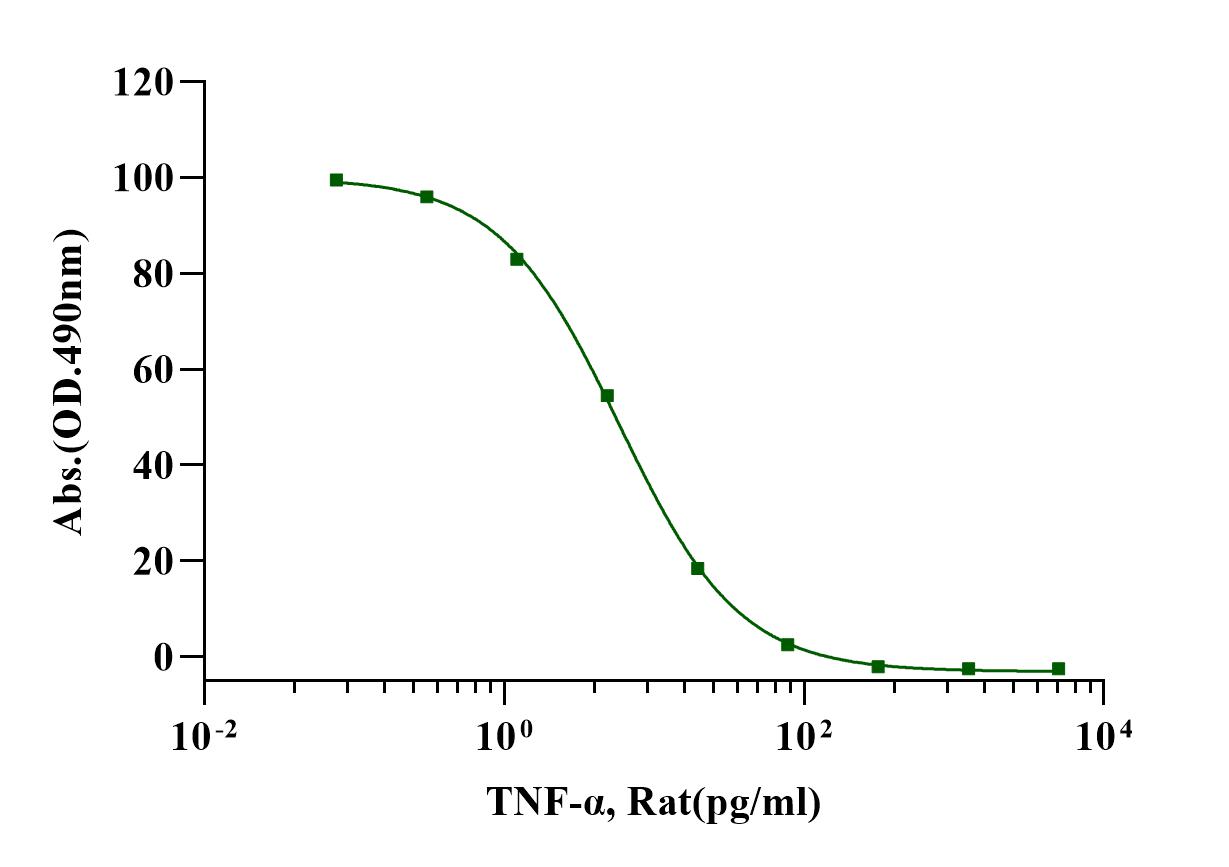Leu80-Leu235
17kDa (Reducing)
20mM Tris, 300mM NaCl, pH8.0
Reconstitute at 0.1-1 mg/ml according to the size in ultrapure water after rapid centrifugation.
· 12 months from date of receipt, lyophilized powder stored at -20 to -80℃.
· 3 months, -20 to -80℃ under sterile conditions after reconstitution.
· 1 week, 2 to 8℃ under sterile conditions after reconstitution.
· Please avoid repeated freeze-thaw cycles.
1.Hector J. et al. (2007) TNF-alpha alters visfatin and adiponectin levels in human fat. Horm Metab Res. 39(4): 250-255.
2.Berthold-Losleben M. et al. (2008) The TNF-alpha System: Functional Aspects in Depression, Narcolepsy and Psychopharmacology. Curr Neuropharmacol. 6(3): 193-202.
Tumor Necrosis Factor alpha (TNF-α), is an inflammatory cytokine produced by macrophages/monocytes during acute inflammation and is responsible for a diverse range of signaling events within cells, leading to necrosis or apoptosis. TNF alpha exerts many of its effects by binding to either a 55 kDa cell membrane receptor termed. TNFα activates signals through two receptors, TNF-R1, which is expressed on most cell types, and TNF-R2, which is expressed mainly on immune cells. TNFα can have many functions including, to stimulate of phagocytosis in macrophages, to chemoattract neutrophils, to increase insulin resistance and to induce fever.

Measured in a cell proliferation assay using L-929 mouse fibrosarcoma cells, the EC50 for this effect is less than 10pg/mL
2μg (R: reducing condition, N: non-reducing condition).